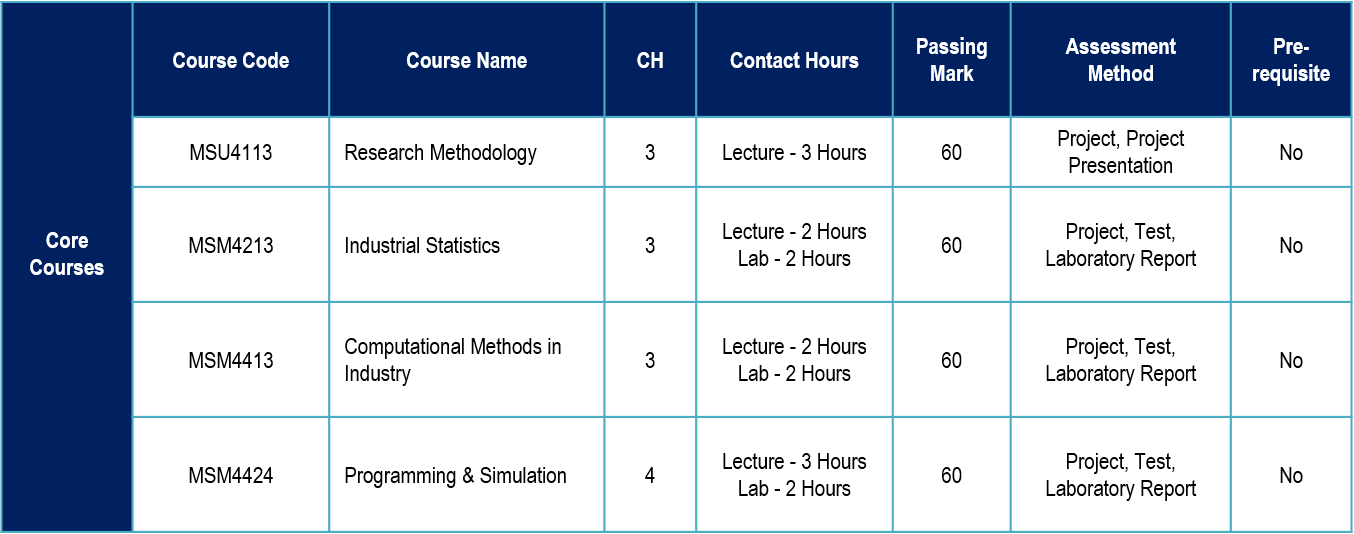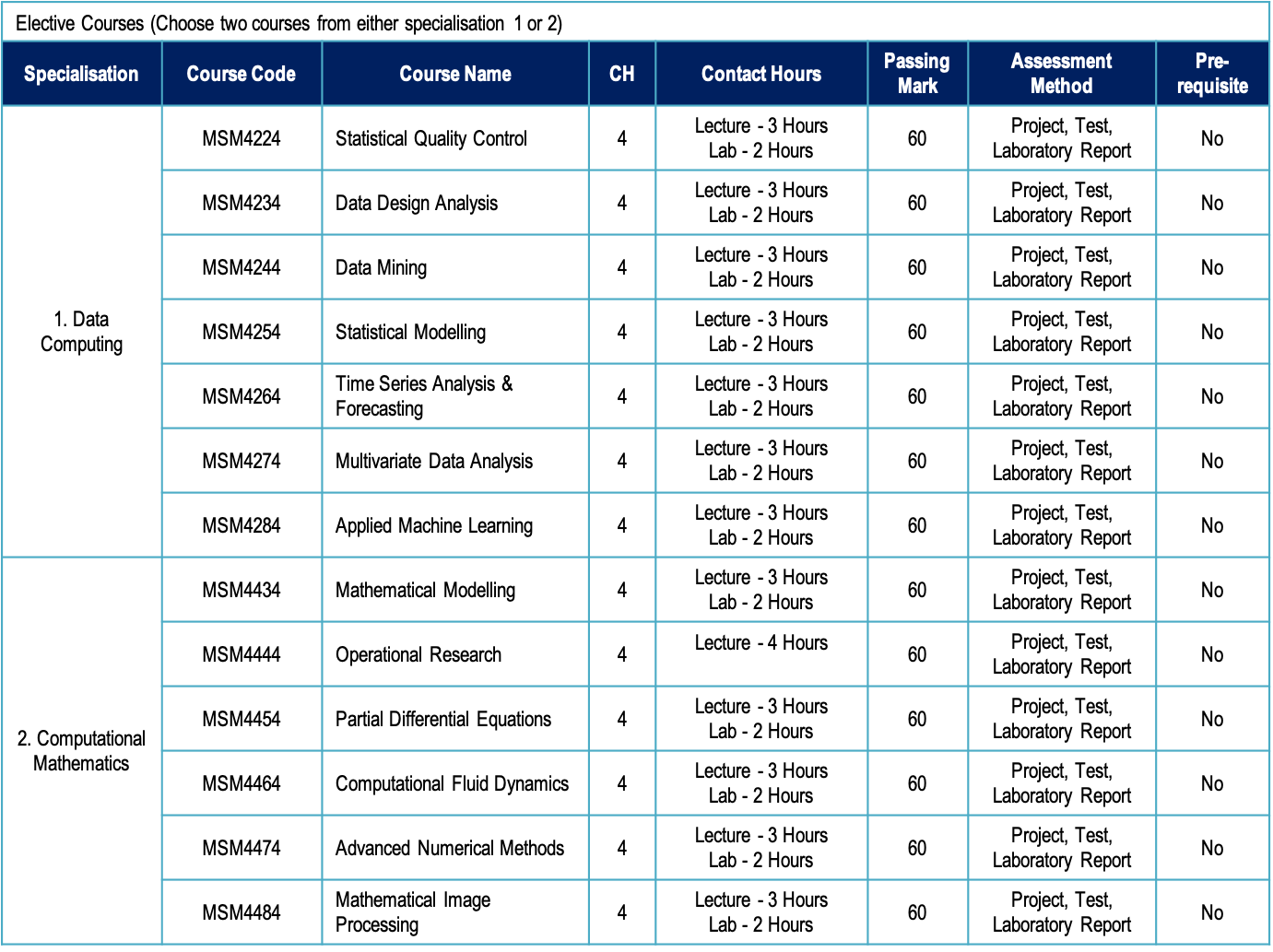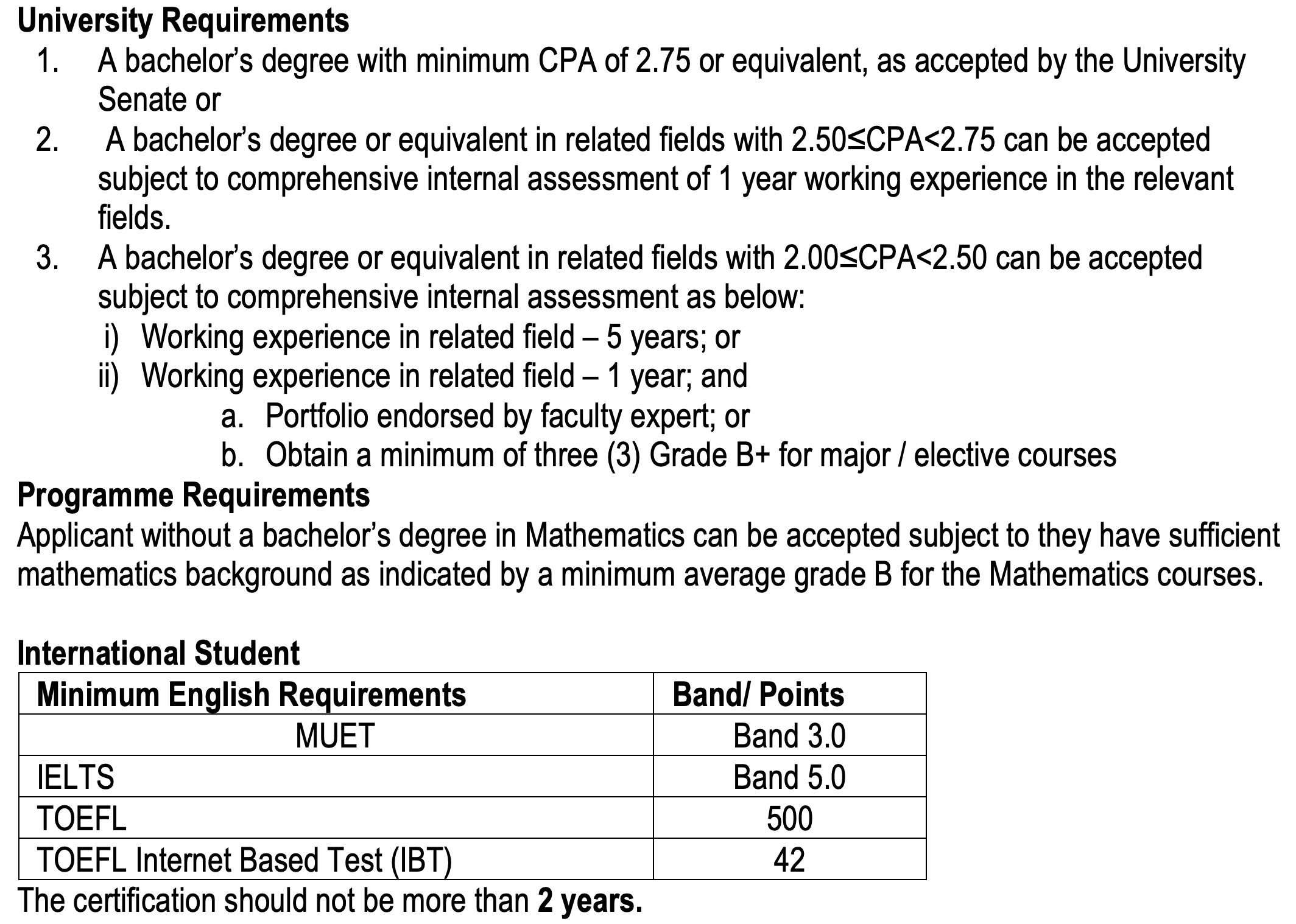Programme Description
Master of Science (Industrial Mathematics) is designed to provide in-depth coverage topics of the industrial and applied mathematics in two sub-specialisations, namely (i) Data Computing, and (ii) Computational Mathematics. The programme caters two pillars of Industrial Revolution 4.0 (IR 4.0) including simulation and big data computing. The program emphasizes embedded case study in all courses that enables students to integrate theory and application as well as using mathematical software such as Python, R Language, VBA, EXCEL, Matlab, TORA, Minitab and KNIME as the vital computational tools. The program also requires every student to complete a project dissertation based on a chosen applied and industrial problems. The programme caters to fresh graduates and professionals, especially the non-mathematics degrees holders, who aspire to enhance their knowledge and competency in one of the sub-specialisations being offered. Applicants who possess a first degree in any of the following specializations; Statistics, Mathematics, Finance, Economy, Computing, Engineering and Sciences as well as good mastery in undergraduate mathematics courses are welcomed to apply.
Master of Science (Industrial Mathematics)/ Sarjana Sains (Matematik Industri)
How to Apply?
Highlighted IR 4.0
- Programming & Simulation (Python)
- Machine Learning
- Data Mining
- Pattern Recognition and Data Visualization
- Image Processing
- Monte Carlo Simulation
- Graph & Trees
- Time Series Analysis
- Multivariate Data Analysis
- Optimization
- Modelling & Simulation
Demand of the Mathematics Graduates Across a Range of Sectors
- Petroleum Industries
- Manufacturing Industries
- Medicine and Health
- Information Technology
- Business Consultancy and Operational Research
- Engineering Companies
- Insurance Companies
- Market Research and Marketing Companies
- Finance, Banking and Accountancy Firms
- Human Resource
- Educational Sectors
- Government Sectors
- Consulting Sectors
- Retail Sectors
Career Path
- Academician
- Acoustic Consultant
- Actuarial Analyst
- Algorithms Engineer
- Business Analyst
- Cryptographer
- Data Analyst
- Data Engineer
- Data Scientist
- Economist
- Financial Analyst
- Fraud Investigator
- Investment Analyst
- Inventory Control Specialist
- Machine Learning Engineer
- Mathematical Modeler
- Meteorologist
- Operational Researcher
- Programmer Analyst
- Quantitative Financial Analyst
- Quantity Surveyor
- Statistician
- Software Engineer
- Software Developer
- Systems Engineer
- Researcher
What they say about us?

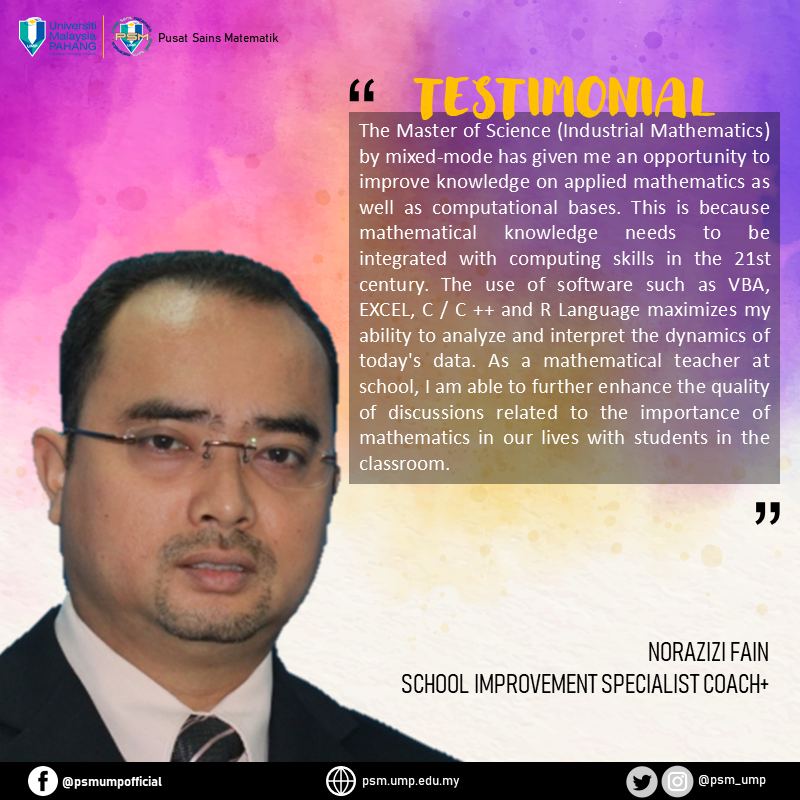




Study Duration

*Full Time – Minimum 12 credit hours/ semester
*Part Time – Minimum 6 credit hours/ semester
Course Fees

*MYR- Ringgit Malaysia
*Hostel/Accomodation fees are not included
Official Brochure
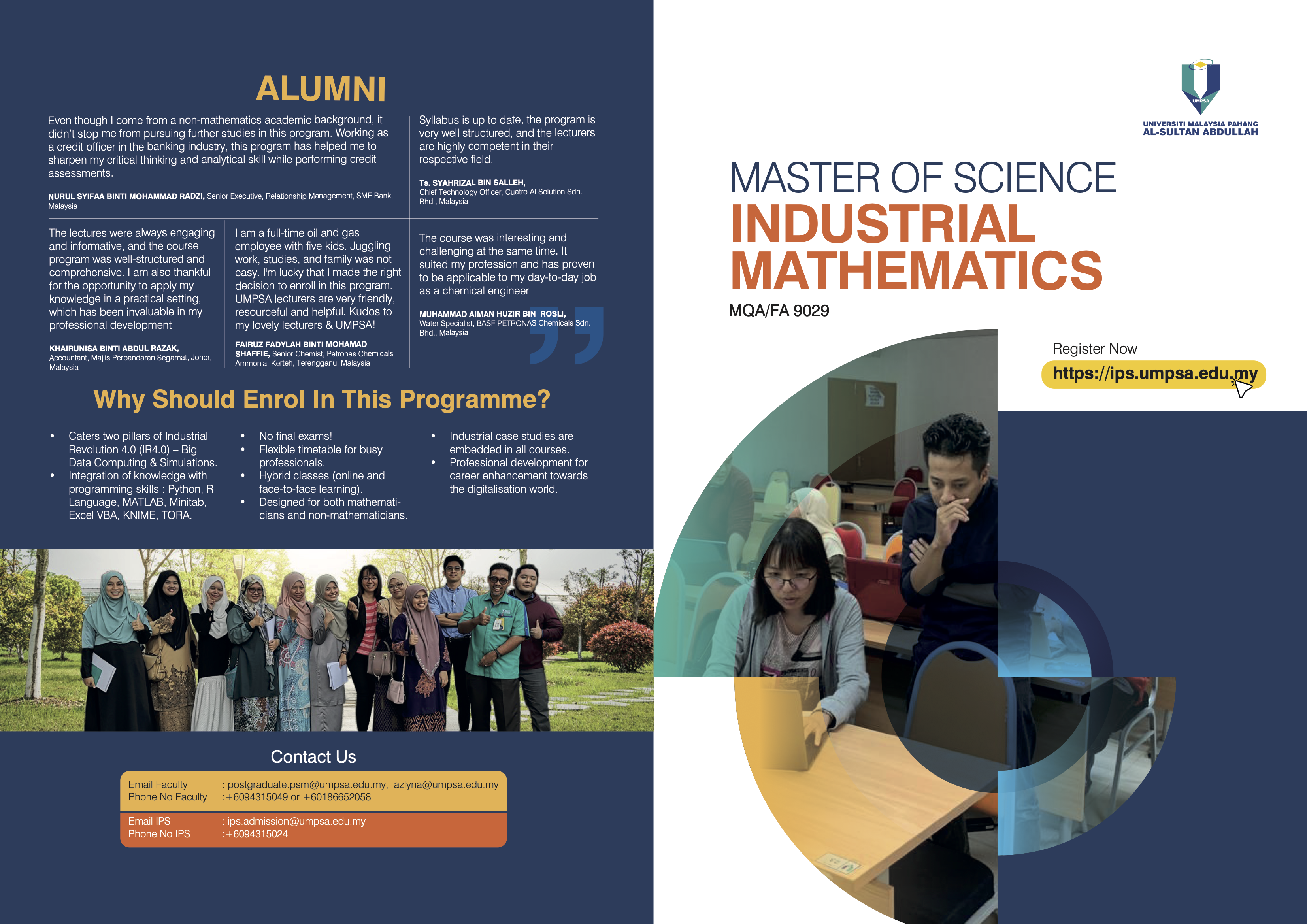
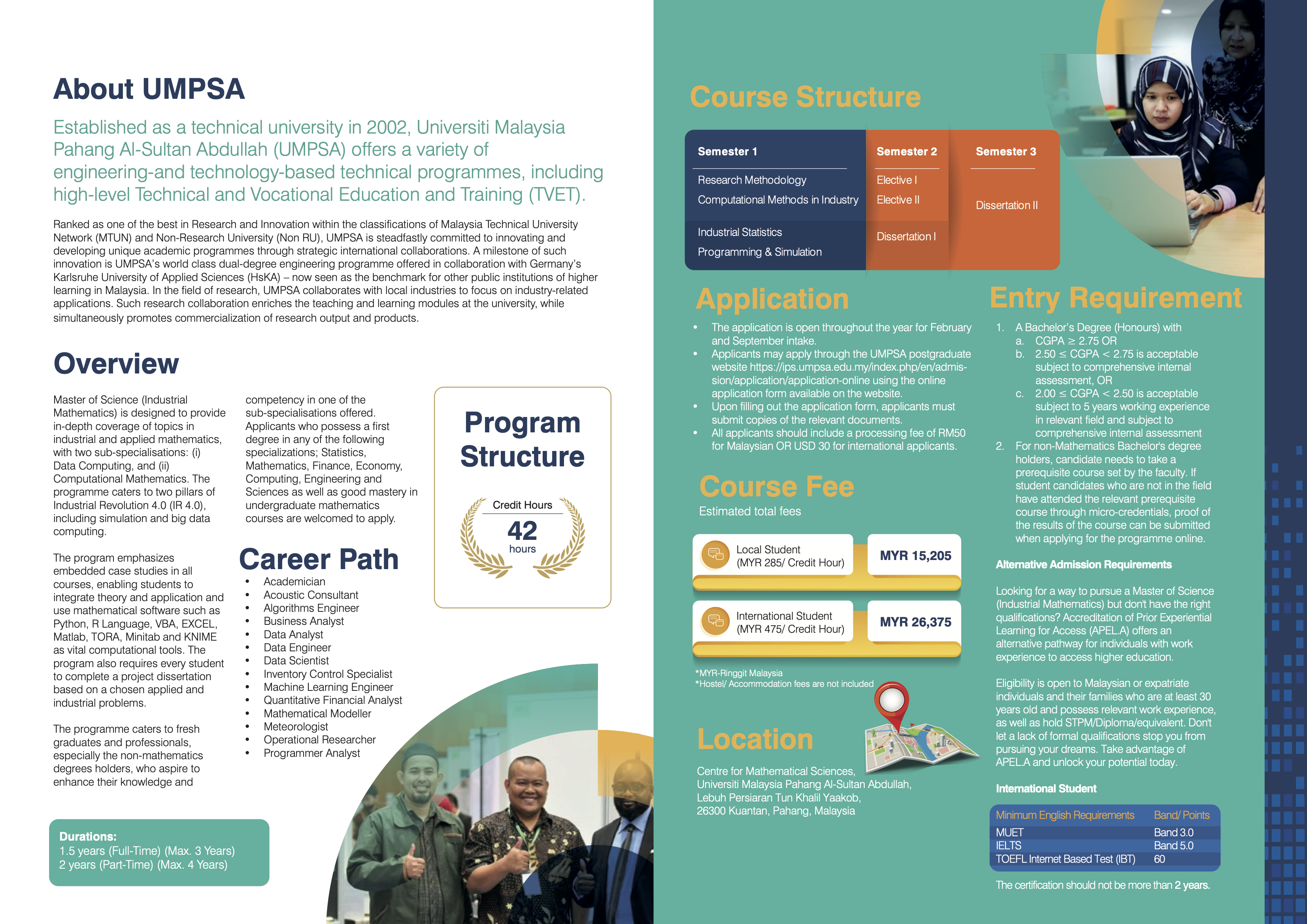
Programme Educational Objectives (PEOs)
No | Programme Educational Objectives (PEOs) | Key Performance Indicator (KPI)
|
|---|---|---|
PEO1 | Graduate who can apply advanced mathematical knowledge and analytics skills in various industry, engineering, technology and other sectors (Cognitive). | 80% of graduates should be employed in national, multinational or government organizations within 5 years in related fields. |
PEO2 | Graduate who is competent in using current mathematical and analytics software to solve related industrial problems. (Psychomotor). | 60% of graduates will be promoted to a senior level within 5 years. |
PEO3 | Graduate who is able to integrate affective values in producing holistic human capital (Affective). | 70% of graduates work professionally and show high values of integrity. |
Programme Educational Objectives (PEOs) vs UMP Educational Objectives (UEOs)
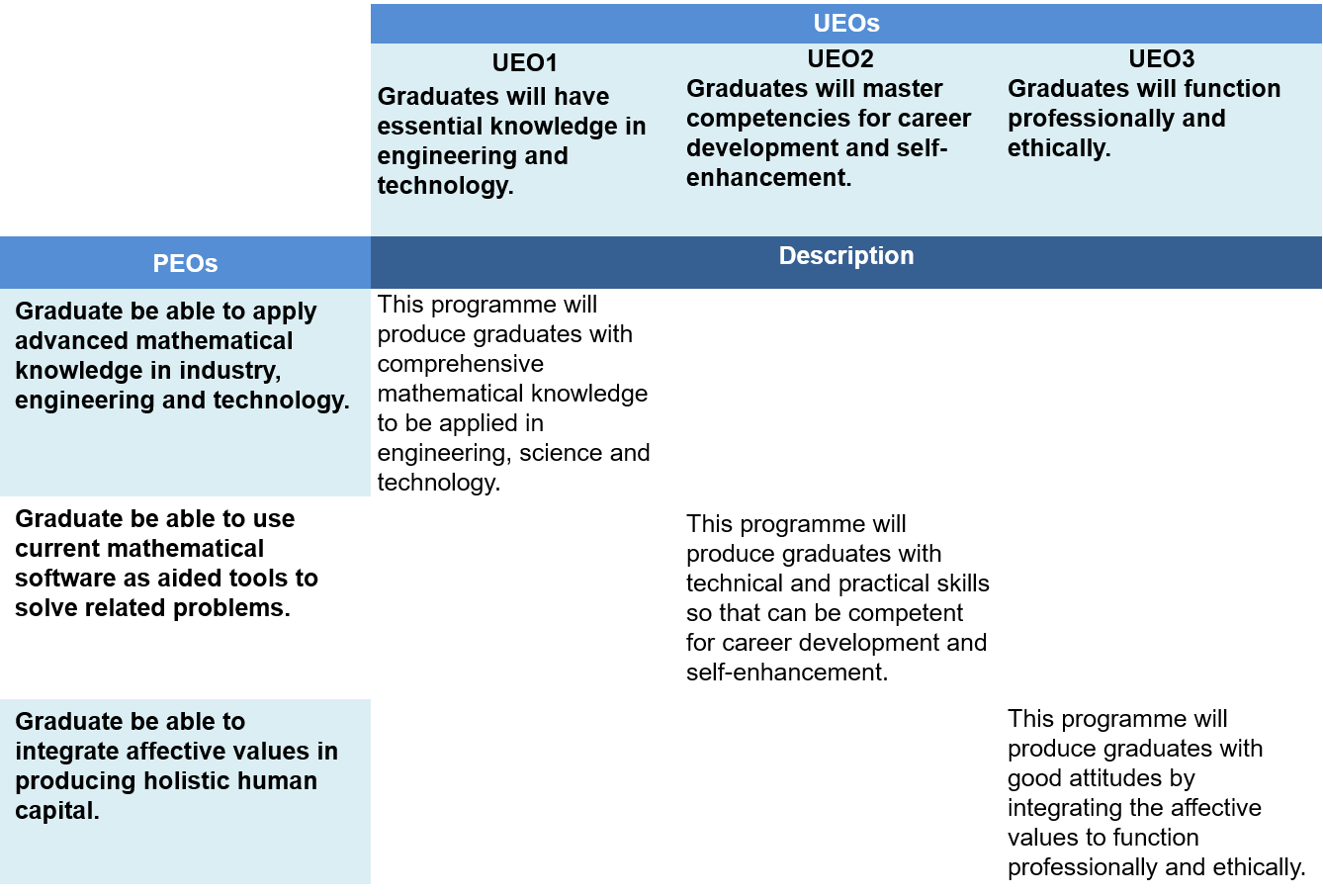
Programme Learning Outcomes (PLOs)
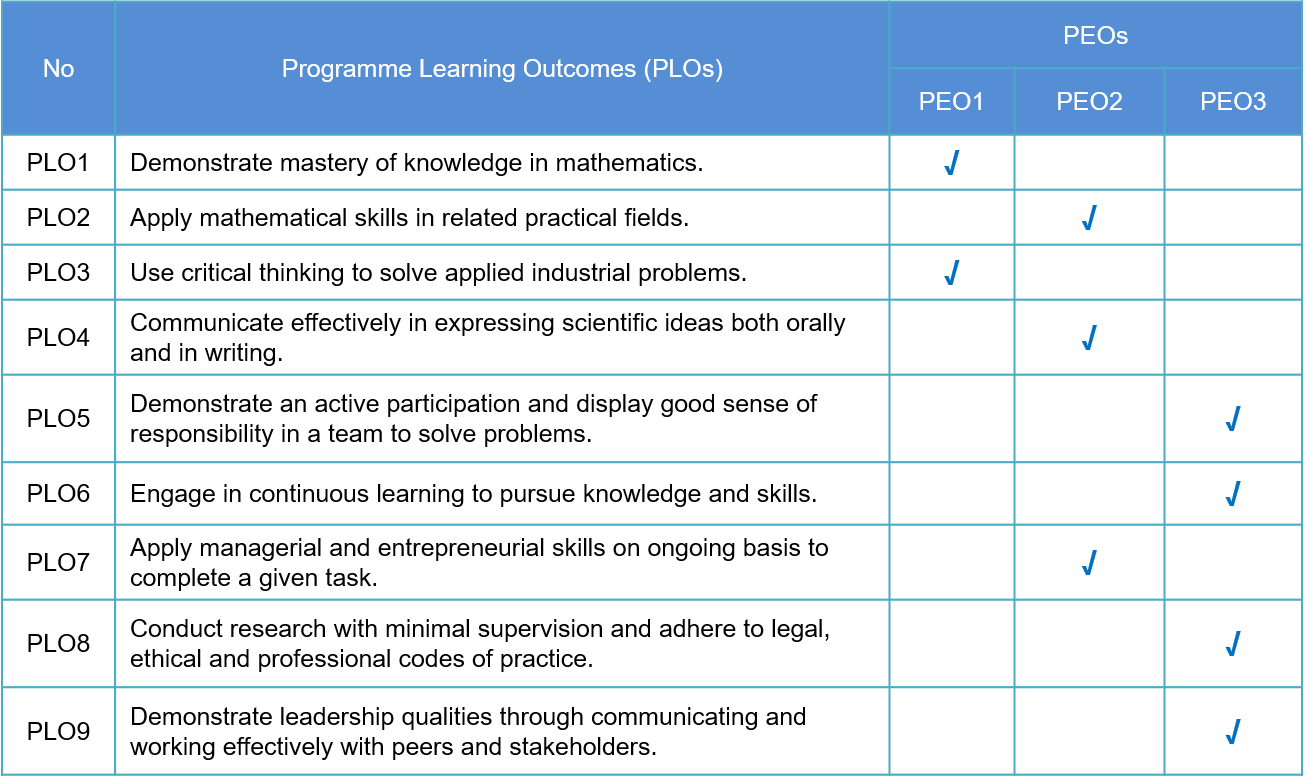
Study Plan
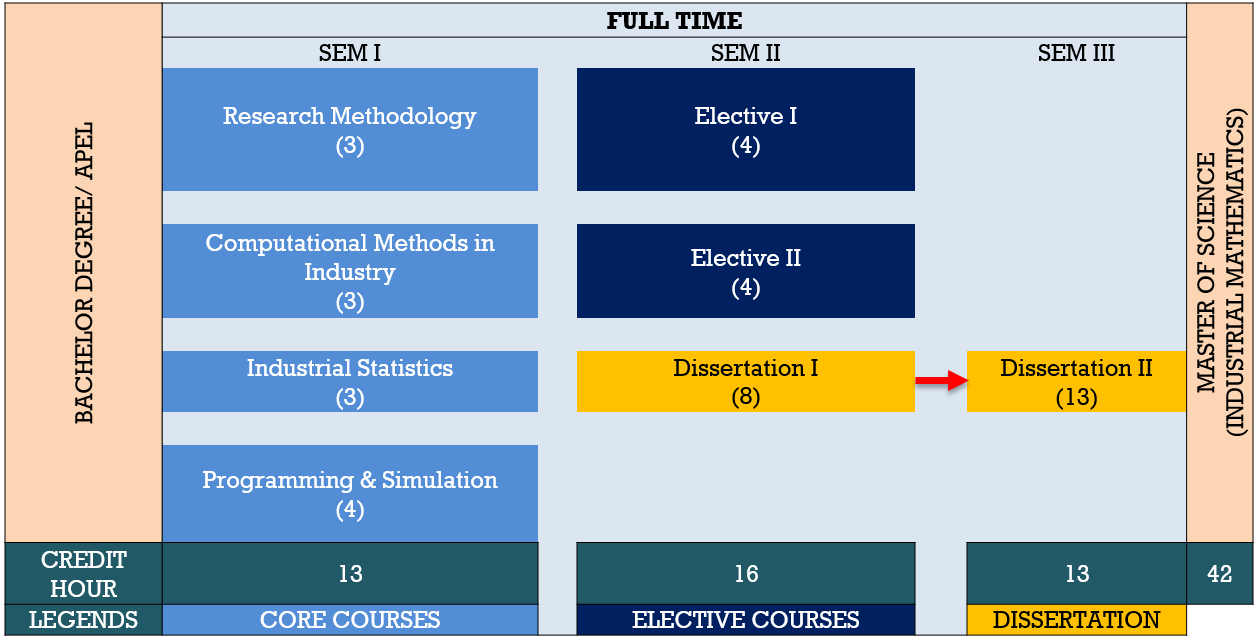
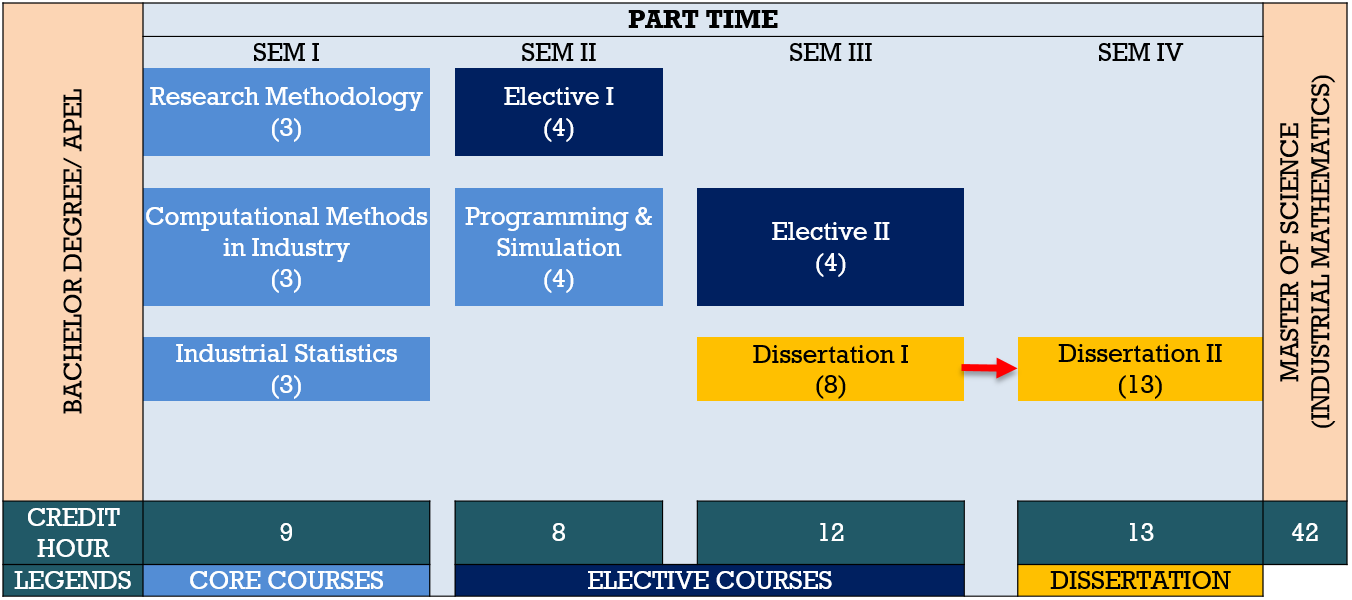
Curriculum Structure

List of Courses
